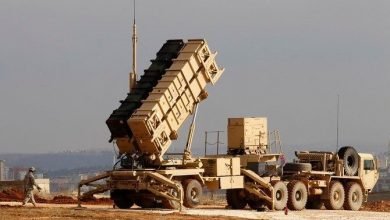U.S. ends refueling support in Yemen war as pressure builds on Saudi Arabia
Saudi Arabia and the United States have agreed to end U.S. refueling of aircraft from the Saudi-led coalition battling Houthi insurgents in Yemen, halting a divisive aspect of U.S. support to a war that has pushed Yemen to the brink of famine.
The move, announced by the coalition on Saturday and confirmed by Washington, comes at a time when Riyadh, already under scrutiny for civilian deaths in Yemen air strikes, is facing global furor and potential sanctions over the murder of journalist Jamal Khashoggi at its Istanbul consulate on Oct. 2.
The United States and Britain late last month called for a ceasefire in Yemen to support U.N.-led efforts to end the nearly four-year long war that has killed more than 10,000 people and triggered the world’s most urgent humanitarian crisis.
“Recently, the Kingdom and the Coalition increased its capability to independently conduct inflight refueling in Yemen. As a result, in consultation with the United States, the Coalition has requested the cessation of inflight refueling support for its operations in Yemen,” it said in a statement.
Saudi Arabia has a fleet of 23 planes for refueling operations, including six Airbus 330 MRTT used for Yemen, while the United Arab Emirates has six of the Airbus planes, Saudi-owned Al Arabiya al-Hadath channel reported on Saturday.
Riyadh also has nine KC-130 Hercules aircraft that can be used, it added.
U.S. Defense Secretary Jim Mattis said the U.S. government was consulted on the decision and that Washington supported the move while continuing to work with the alliance to minimize civilian casualties and expand humanitarian efforts.
Any co-ordinated decision by Washington and Riyadh could be an attempt to forestall action threatened in Congress next week by lawmakers over refueling operations.
However, a halt to refueling could have little practical effect on the conflict, seen as a proxy war between Saudi Arabia and Iran. Only a fifth of coalition aircraft require in-air refueling from the United States, U.S. officials said.
The Sunni Muslim alliance led by Saudi Arabia and the UAE has recently stepped up military operations against the Iranian-aligned Houthi movement, including in the main port city of Hodeidah, which is a lifeline for millions of Yemenis.
“The continued escalation of attacks … by the U.S.-Saudi-Emirati coalition confirms that the American calls for a cease-fire are nothing but empty talk,” Mohammed Ali al-Houthi, head of the group’s supreme revolutionary committee, wrote in a column published by the Washington Post on Friday.
He said the ceasefire call was an attempt “to save face after the humiliation” caused by the murder of Washington Post columnist Khashoggi, a critic of Saudi policy, that has strained Riyadh’s relationship with the West.
The leader of the Iran-backed Lebanese Hezbollah group, which Saudi Arabia accuses of backing the Houthis, said calls from the United States, Europe and the U.N. for a ceasefire in Yemen “were good to hear” but could also be a trick aimed at timewasting.
“I say to our brothers there: Be patient, be steadfast … You are closer to victory than at any previous time,” Sayyed Hassan Nasrallah said in a televised speech.
The United Nations High Commissioner for Human Rights Michelle Bachelet called for an immediate end to the military escalation in Yemen.








